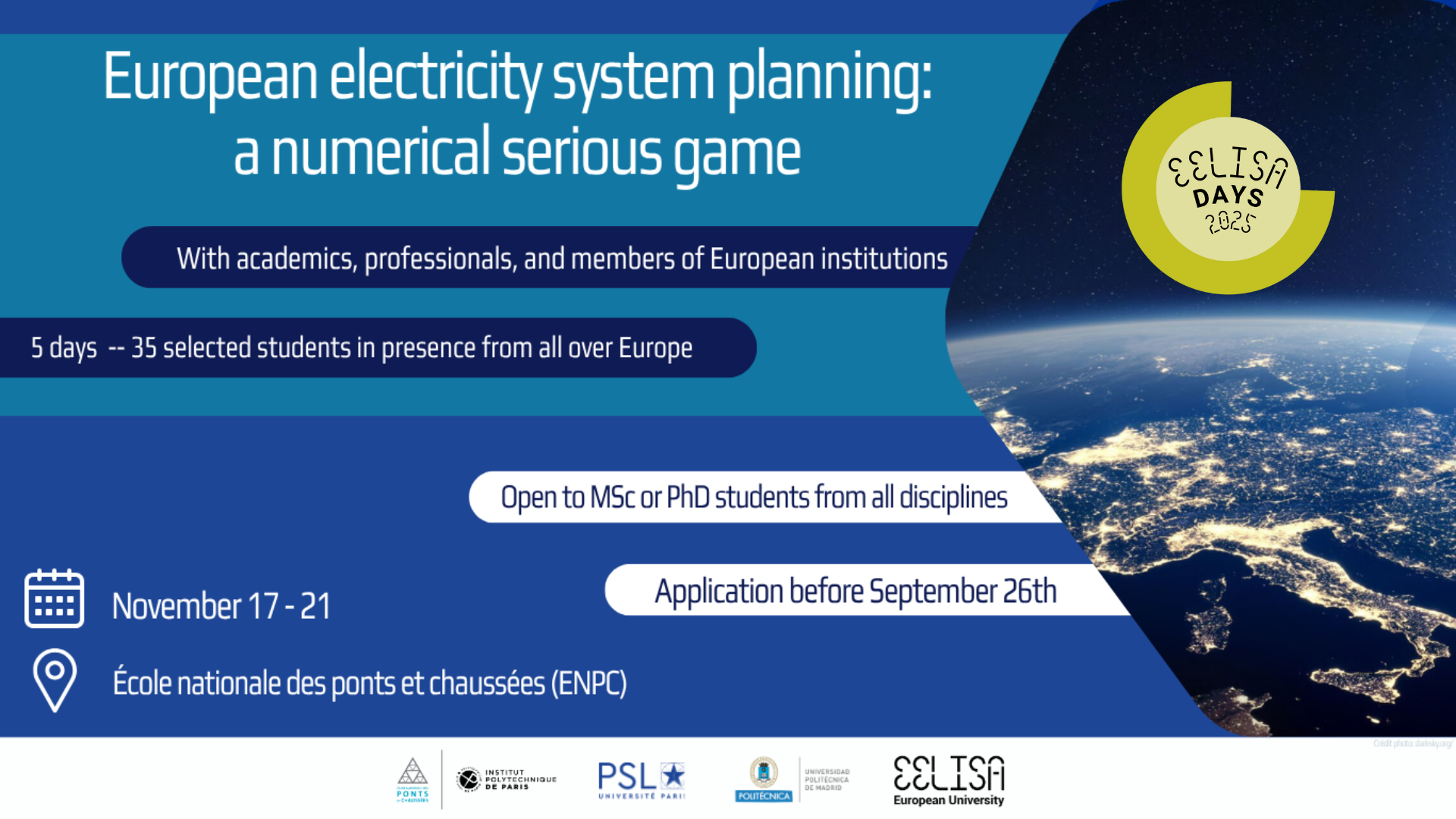
European electricity system planning for 2050: a serious game
Are you eager to work in a multi-disciplinary team? Curious about the challenges of building a resilient, efficient, and carbon-neutral European electricity system for the coming decades? If so, this Serious Game is designed for you. Over the course of five days, you will engage on in-depth theoretical sessions led by experts from academia, industry, and European institutions.These sessions will provide you with the needed knowledge to understand electricity system planning, covering key topics such as scenario design, demand forecasting, mathematical optimization, and the integration of climate constraints into long-term strategies.
You will then put this knowledge into practice during supervised simulations based on the PyPSA (Python for Power System Analysis) environment and real data from the European Resource Adequacy Assessment, becoming part of the Serious Game.
How does the Serious Game work?
During the Serious Game, you will join a student team and take the role of an European country aking charge of national investment decisions, such as choosing power generation capacities for 2035–2050 and determining interconnection levels to support regional cooperation
You will face the same strategic dilemmas real policymakers do, how to meet demand at minimal cost while coordinating with neighbors and managing uncertainties.
The Serious Game blends numerical modeling with negotiation and discussion. You will simulate and stress-test your national strategy within a shared European system, then reflect, collaborate, and refine decisions in light of emerging challenges. This unique experience will help you understand both the technical and political dimensions of energy planning in a decarbonizing Europe.
More information
– A more detailed description of this course can be found here.
– “European Resource Adequacy Assessment”, an example of public study to plan the future of an electricity system. See 2024 edition main page, and download its Executive report if you are very curious!
– In the case of France, see RTE (France’s “Transmission System Operator”) ”Energy pathways 2050” to get a typical idea of the projection of a “system” to 2050… if you have dozens of engineers * years of work available! Idem, you can find the Executive summary here.
– Regarding the fundamental technico-economic and mathematical concepts associated with this summer school, the following Wikipedia page provides the foundations of the Unit Commitment Problem.
Credentials
Through this activity, all participants will receive EELISA credentials for achieving Level 3 in SDGs 7, 13, and 17. Additionally, students will write position papers.
Participation and traveling
– Registration and participation are FREE
– A dedicated Joint Call budget is available to cover travel costs to Paris and accommodation costs for a selection of students from institutions outside Paris/Île-de-France. Students who are not covered by this funding are encouraged to contact the EELISA coordinator at their institution to explore alternative support options.
WHEN
17 to 21 of November, 2025
WHERE
Onsite, at ENPC
FOR WHOM
EELISA Students
